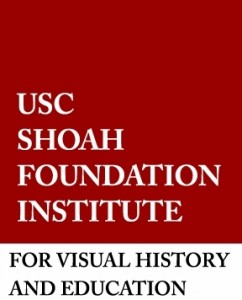 On March 10-11, 2010 the UT Libraries Human Rights Documentation Initiative (HRDI) hosted a visit from the USC Shoah Foundation Institute for Visual History and Education (SFI).
On March 10-11, 2010 the UT Libraries Human Rights Documentation Initiative (HRDI) hosted a visit from the USC Shoah Foundation Institute for Visual History and Education (SFI).
Best known for its extensive archive of 52,000 Holocaust survivor testimonies, the USC SFI continues to expand its programming to include testimonies from genocide survivors worldwide. Dr. Stephen Smith, Executive Director, Sam Gustman, Chief Technology Officer, and Karen Jungblut, Director of Research and Documentation, met with members of the HRDI team to discuss opportunities for collaboration on their respective projects in Rwanda as well as best practices for digital preservation and metadata exchange. Continue reading HRDI meets with Shoah Foundation

 We can officially celebrate the completion of the Benson component of
We can officially celebrate the completion of the Benson component of